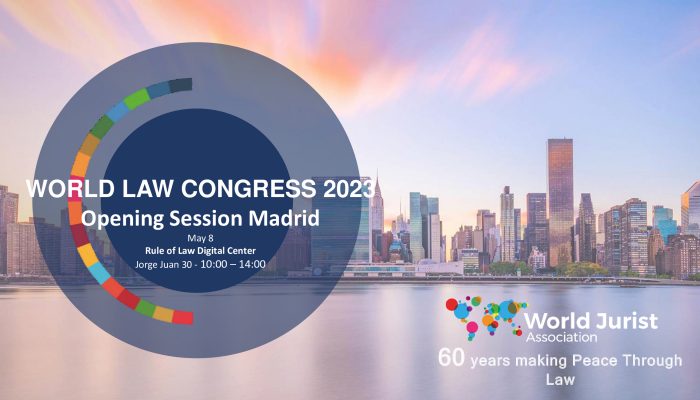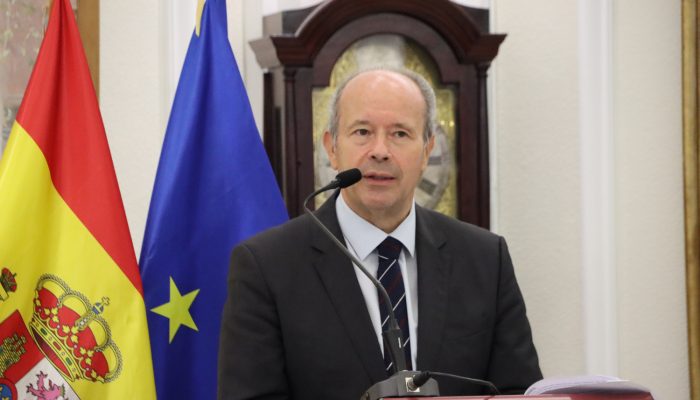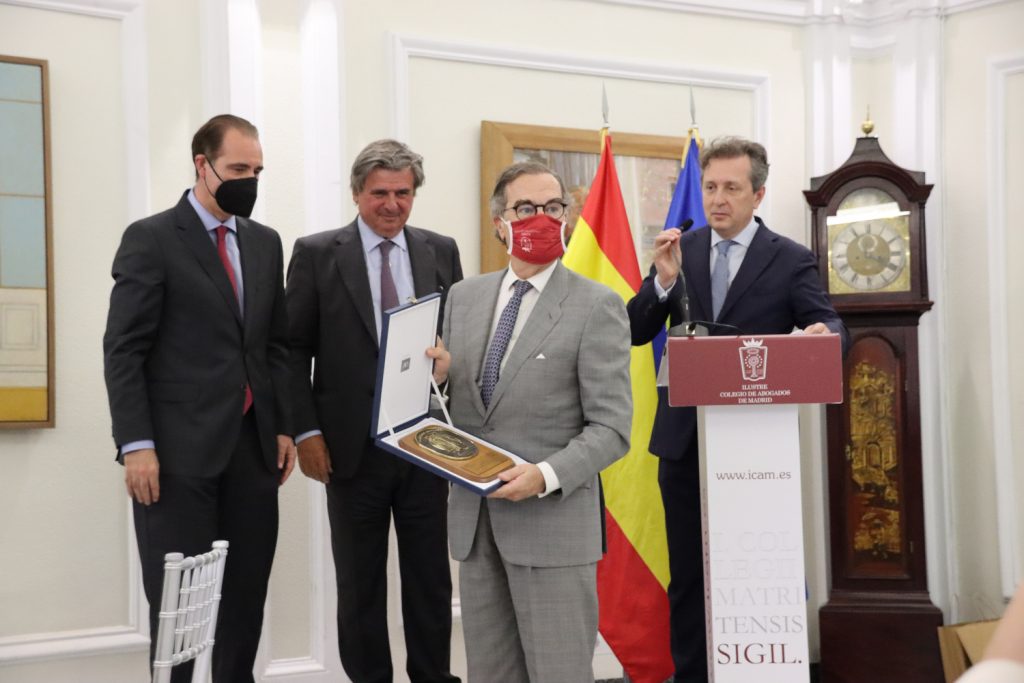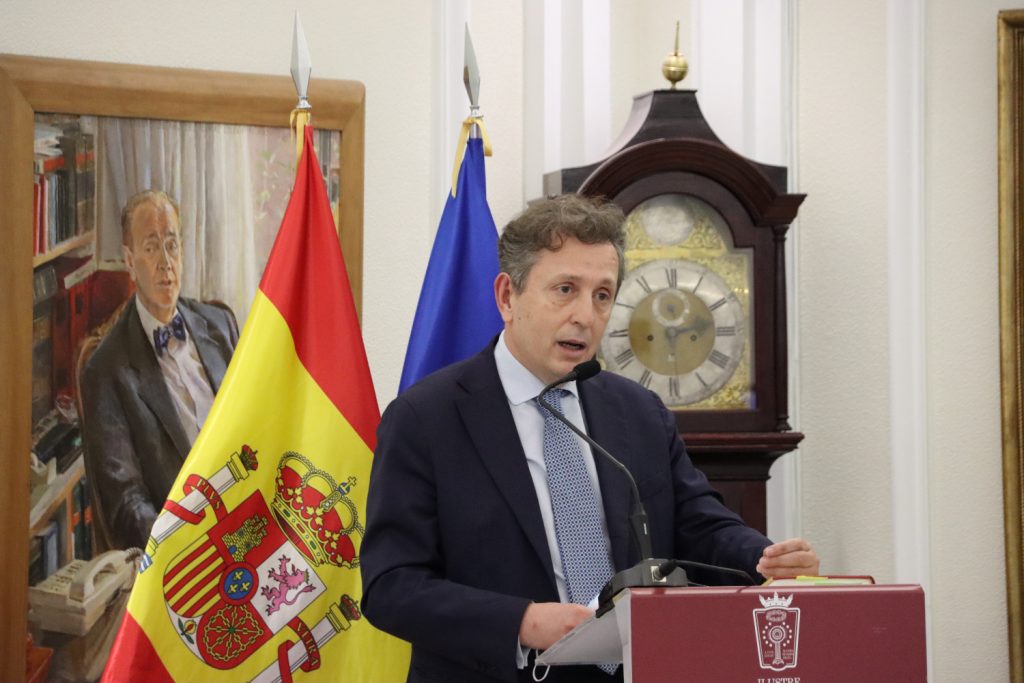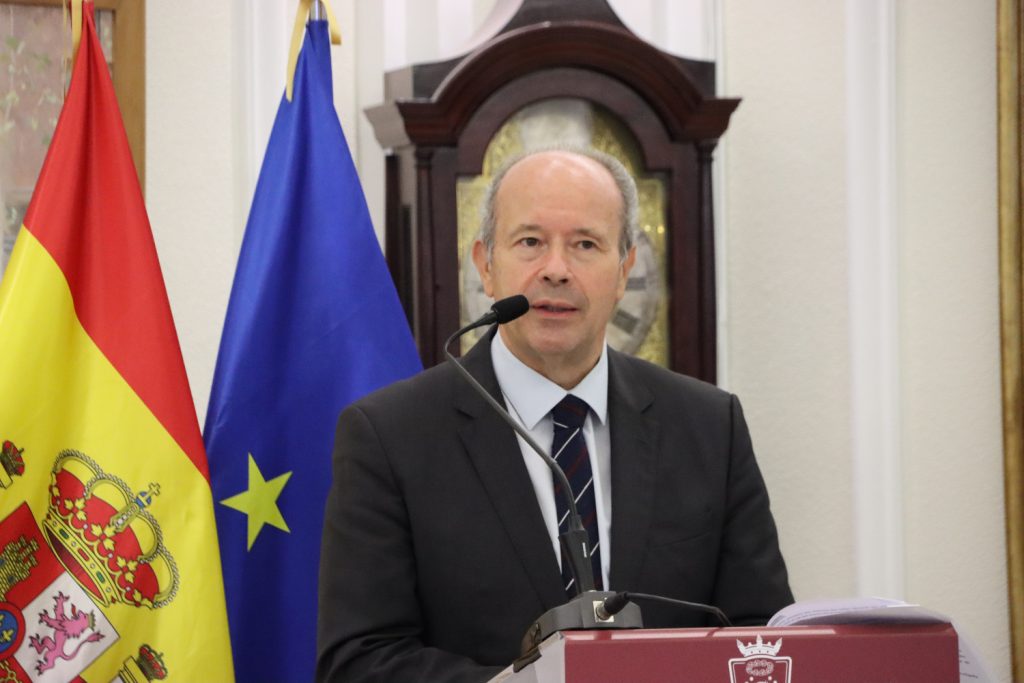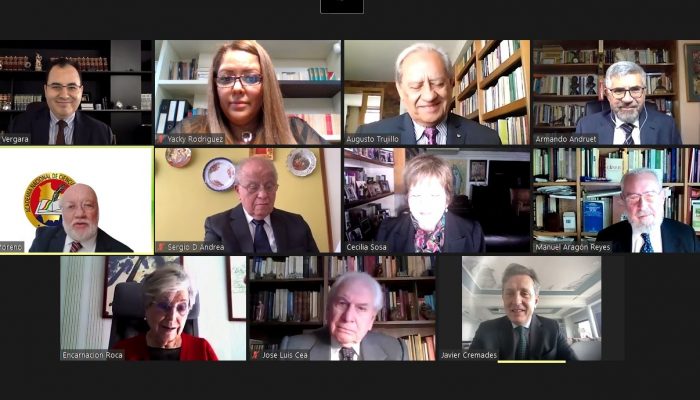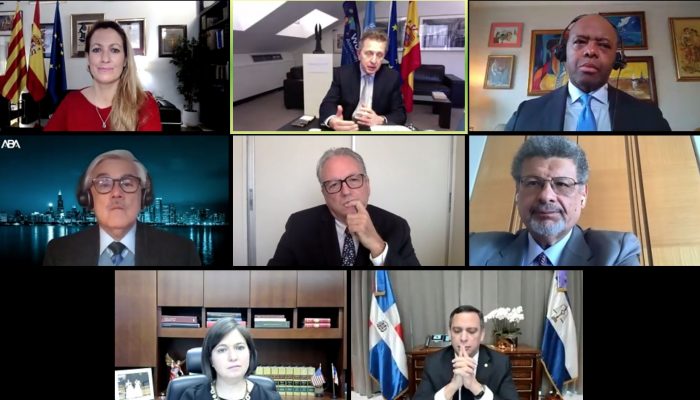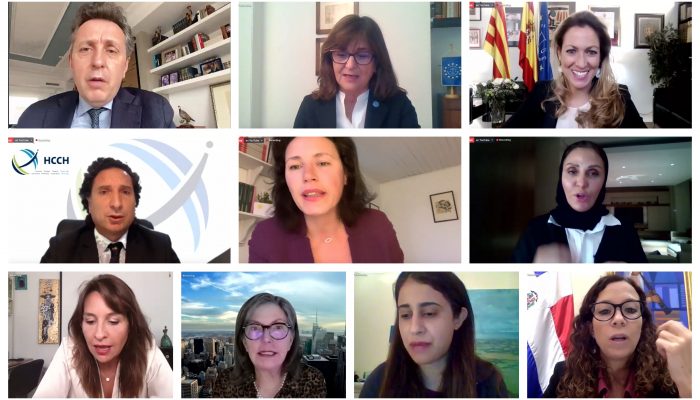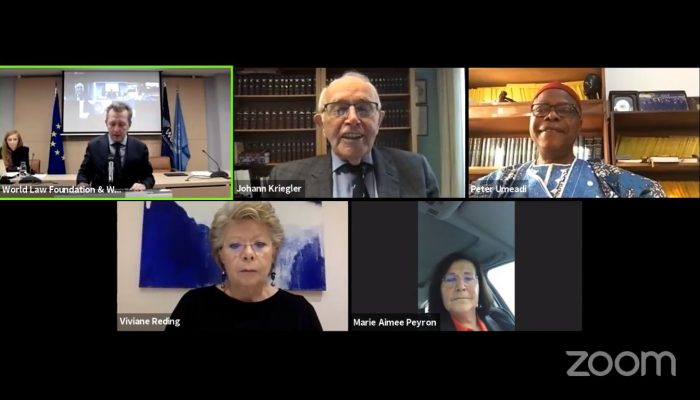>> Se trata del máximo galardón que entrega la WJA y reconoce el trabajo de Young por “el progreso social, político y económico de los oprimidos de todo el mundo”
>> Andrew Young, más cercano colaborador de Martin Luther King Jr., fue el primer embajador afroamericano de EE. UU. ante la ONU, quien también impulsó las leyes estadounidenses de Derechos Civiles y de Derecho al Voto
>> La distinción será entregada por S.M. Felipe VI el 8 de mayo en Madrid durante la presentación del World Law Congress New York 2023 en la inauguración del Rule of Law Digital Center
>> En el evento, la WJA también entregará las Medallas de Honor Ruth Bader Ginsburg 2023 a mujeres juristas de destacada trayectoria, como Navi Pillay, Alta Comisionada de la ONU para los DDHH (2008-2014), y Lady Brenda Hale, primera presidente mujer de la Corte Suprema del Reino Unido.
El próximo 8 de mayo la World Jurist Association (WJA) entregará al destacado líder de los derechos civiles estadounidense Andrew Young su máximo galardón: el World Peace and Liberty Award. Se trata de un reconocimiento que, tal como explican desde la asociación, busca resaltar la labor internacional de Young en favor del “progreso social, político y económico de los oprimidos de todo el mundo”.
Nacido en Estados Unidos en 1932, Andrew Young es político, diplomático y activista por los derechos civiles y humanos. Fue el colaborador más cercano a Martin Luther King Jr., quien falleció a su lado https://youtu.be/LqIjO1Qqxcsc
Young participó en la redacción de la Ley de Derechos Civiles de 1964 y en la Ley de Derecho al Voto de 1965 de su país, y fue nombrado vicepresidente ejecutivo de la Conferencia de Liderazgo Cristiano del Sur (1968-1970), tras la muerte de King.
Congresista por Georgia, Young fue el primer embajador afroamericano de Estados Unidos ante las Naciones Unidas. Desde allí promovió la protección de los derechos humanos y el progreso económico en los países subdesarrollados del mundo, y su labor hizo que esto se convirtiera en objetivo de la política exterior del presidente estadounidense Jimmy Carter.
Fue alcalde de Atlanta en 1982-1990, desarrollando la ciudad para convertirse en la Sede de los Juegos Olímpicos.
En 1994, Bill Clinton, Nelson Mandela y el Congreso de los Estados Unidos crearon el Fondo de Desarrollo Empresarial de África Meridional (SAEDF), presidido por Andrew Young. El Fondo tiene el propósito proporcionar financiación para estimular la creación y expansión de pequeñas y medianas empresas indígenas en todo el sur de África.
En 2003 fundó la Fundación Andrew Young, destinada a apoyar y promover la educación, la salud, el liderazgo y los derechos humanos en los Estados Unidos, África y el Caribe.
“Young representa los valores de la World Jurist Association. A lo largo de toda su carrera profesional ha sido un ejemplo para la humanidad por su defensa del Estado de Derecho y, por ello, para nosotros es un orgullo entregarle este galardón”, ha asegurado el presidente de la WJA, Javier Cremades.
El Nobel del Derecho
El World Peace and Liberty Award es el máximo galardón que concede la World Jurist Association, conocido como el Premio Nobel del Derecho. Se concede a personalidades e instituciones mundiales que se han distinguido por su compromiso con la promoción de la paz a través del Derecho y del Estado de Derecho como garante de la libertad.
En el pasado, este premio ha sido entregado a figuras destacadas como Sir Winston Churchill, Nelson Mandela, René Cassin, Felipe VI Rey de España, Ruth Bader Ginsburg y, en su última edición, a la sociedad colombiana, en manos de su entonces presidente Iván Duque.
En esta oportunidad, S.M. Felipe VI Rey de España y el Comisario de Justicia de la Unión Europea, Didier Reynders, serán los encargados de entregar el galardón a Young.
Opening Session Madrid
La ceremonia de entrega del World Peace and Liberty Award a Andrew Young será el cierre de la Opening Session Madrid que servirá como marco para la presentación del World Law Congress que se realizará en Nueva York el 20 y 21 de julio. De igual forma, se inaugurará el Rule of Law Digital Center Madrid, el primero de los centros para la promoción del Estado de Derecho en el mundo que inaugurará la World Law Foundation.
Durante el nutrido programa de la Opening Session Madrid, también se entregarán las Medallas de Honor Ruth Bader Ginsburg de la WJA 2023. Un galardón que recibirán Lady Brenda Hale, presidenta del Tribunal Supremo del Reino Unido 2017-2020 y primera mujer en desempeñar este cargo; Ambiga Sreenevasan, abogada, activista malaya por elecciones libres, por los derechos de la mujer y defensora de los derechos humanos; Imrana Jalal, presidenta del Panel de Inspección del Banco Mundial, abogada especializada en derechos humanos y fundadora del movimiento por la equidad de género en su natal Fiyi; Asifa Kakar, Jueza de la Corte Suprema de Afganistán y miembro de la Comisión redactora de la Constitución de Afganistán en 2003, en nombre de la Asociación de Juezas Afganas Refugiadas.
Además, Navi Pillay, Alta Comisionada de las Naciones Unidas para los Derechos Humanos 2008-2014, jueza de la Corte Penal Internacional 2003-2008, y presidenta del Tribunal Penal Internacional para Ruanda, recibirá en persona la Medalla de Honor RBG en 2021, la cual aceptó virtualmente en su momento dadas las restricciones de viaje ese año.

